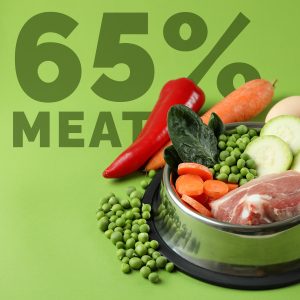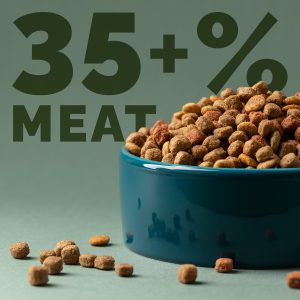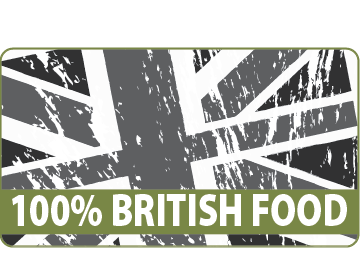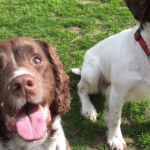How to care for a dog with a food allergy
Many dogs experience food allergies and here at The Dog Man’s Choice, we understand that it can be a real worry. The good news is that you can support your pet’s future wellbeing by making the right nutritional choices and ensuring a healthy feeding regime.
Don’t forget that bad reactions to food should never be ignored. Always speak to your vet to eliminate the possibility of any underlying illness before taking steps to discover what could be causing the allergy.
Symptoms of a food allergy
If your dog is allergic to a particular ingredient, then this may be manifested in a number of different ways:
- Skin problems
- Excessive eating of unusual items such as grass or stones
- Lack of concentration
- Ear infections
- Gastrointestinal conditions
What is important to remember is that a food allergy can arise at any age (although it is most common in animals under five years) and can affect every type of breed.
Blood tests can reveal a little more, but you may need to do some detective work of your own to establish what exactly needs to change to restore your dog’s good health.
Keep a diary
The first step is to write down exactly what your dog eats over the course of a week. Include the main daily intake of dog food along with any scraps, treats and access to foodstuffs he or she shouldn’t be eating.
Be honest – and watchful. It may be that your pooch is secretly eating garden vegetation or even food that’s intended for other household pets.
Look back over the course of the week and you may be surprised. Your dog might be able to cope with small quantities of a certain food and only develops an adverse reaction when larger amounts are consumed. It is only by seeing the bigger picture that you’ll be able to take appropriate action.
What next?
Remove the foods that are most likely to result in a poor reaction. Start with treats and scraps and make sure your pooch isn’t exposed to foodstuffs that may trigger an allergy – particularly human foods that may not be suitable or garden vegetation.
Although taking individual ingredients away might mean you have to be strict for a while, you can gradually reintroduce food, although only one at a time. If symptoms return, it’s highly likely that particular ingredient has caused the allergy so must be avoided in the future.
Making the right choice
Hypoallergenic dog foods are a good choice, along with a diet that contains an easily digestible protein source.
Hydrolysed protein diets such as Fish & Potato with Itch Ease helps food allergic dogs by providing such small protein molecules that an allergic reaction is highly unlikely. It’s tasty too – so even though your pooch may have a sensitive tummy, he or she doesn’t have to sacrifice mealtime enjoyment!
Order a bag of Fish & Potato with Itch Ease today or go to the shop to browse our complete range of hypoallergenic dog foods.
